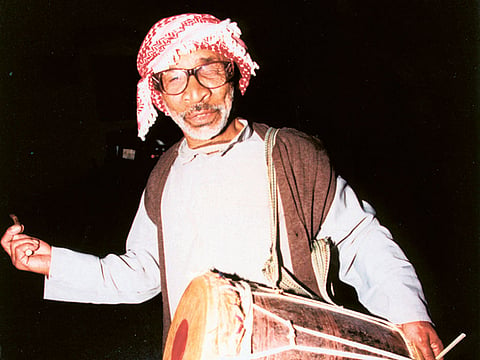Ramadan flashback in Dubai
Old-timers cherish a bygone era when festivities were simpler, more personal and truer in spirit

DUBAI: If you are a fasting Muslim, chances are you have downloaded a free app on your cellphone to keep track of the prayer timings. In all probability, the app will notify you about the time left for iftar and suhour as well.
But back in time – 1970-80s – when technology was not as advanced, it was the Ramadan drummer who did the honours. He walked the lanes and by-lanes of old Dubai, waking the neighbourhood for suhour, the last meal before the dawn prayer.
Emirati Tawhid Abdullah, 58, recalls the long-forgotten tradition with a deep sense of déjà vu. “I really miss that. The drummer was such an integral part of our culture. So too was the neighbourhood which had a huge role to play in our lives. There was so much warmth in the Ramadan greetings back then when people would make it a point to personally meet relatives and friends. Today, it’s more about sending cut-and-paste messages on WhatsApp, SMS or e-mail.”
Chairman of the Dubai Gold & Jewellery Group, Abdullah still considers Deira as the “jewel of Dubai”. The “centre of then”, this was where it all happened – the firing of the cannon, meetings with friends, iftar sit-downs and the much-awaited Eid shopping. “The cannon would be fired just next to where we lived, so we would rush to see it happen.”
He recalls how the last week of Ramadan was THE shopping season of the year. “Fifty per cent of the year’s sales were realised during this one week. Families waited all year to buy gifts for their dear ones. Gold jewellery was the most popular choice for women. As boys, we too would wait to get a new kandura or a pair of shoes or even a pen. Unlike then, there is a gifting occasion almost every day now.”
What Abdullah misses the most is the children’s sense of involvement. “Everyone pitched in with the housework with a lot of love, passion and joy. Parents would sit down with their children and teach them the Quran. They would discuss moral issues. They would take us with them to the majlis and groom us. No doubt many of these traditions continue, but the flavour of the past is missing. Today, things are automated and housemaids do a lot of the work that we did earlier. The younger generation also lacks the passion.”
Other old-timers couldn’t agree more.
Close-knit affair
Islamic affairs expert Iman Ismail Abdullah Al Hashimi, 57, says: “Ramadan used to be such a close-knit affair. As a little girl I remember spending a lot of time with my family and reading the Quran. Moral values were constantly instilled into us. With more women working now, less time is spent doing such things.”
Iman, however, feels the spirit of Ramadan has remained the same. “It is a time when people come together and uphold all that is good, whether it is honesty, patience, helpfulness, sacrifice or respect for others. We should strive to follow these values beyond Ramadan too.”
Emirati businessman Esam Al Mazroei says: “To me, the basic traditions of Ramadan are the same today, only the scale at which they are observed has changed.”
According to the 44-year-old: “Ramadan was simpler in the ‘70s and ‘80s as Dubai was a smaller city with fewer people and a slower pace of life. Today, we have far more people from far more cultures which is adding spice to the way Ramadan is celebrated.”
Expat Muslims also feel the difference.
Indian technocrat M.M. Mohiuddin, who came to the UAE in 1975, recalls how yesteryear companies held smaller iftars at neighbourhood parks. “Mushrif Park was the favourite iftar venue. Masafi Park in Sharjah was also popular. A handful of employees would sit together for the iftar which was a simple affair with biryani being the choice dish. Lavish hotel iftars as we know them today didn’t exist. The rich Emiratis held iftars in their private majlis.”
He says most of the Ramadan shopping was done at the erstwhile Camel Market or Dabba Market in Deira. “There were lots of kiosks here. People shopped briskly although there were no discounts or offers. The area around Sabka was very happening. You could see Emiratis sitting on benches and catching up with friends under a few streetlights. The textile market on Mosque Street in Bur Dubai was also popular.”
Liakhat Ali of the Indian Muslim Association, formed in 1976, remembers how the association would mark Ramadan with workers at their accommodation in Al Ghusais. “We would meet and greet them. At best, we would distribute some ladoos (an Indian sweet) bought from the Kader Hotel in the Sabka area of Deira. The community was very small then. Strangers were like family, but now family members are like strangers.”
YOUSPEAK: What’s your most enduring memory of Ramadan


